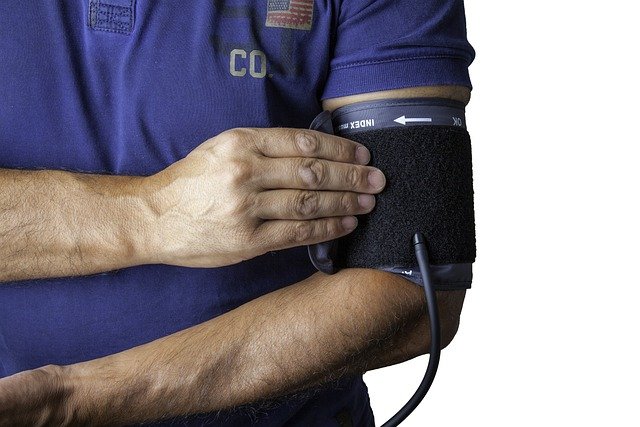Medications That Cause Heart Failure | See Signs and Symptoms
Heart failure is a serious medical condition in which the heart cannot pump blood efficiently enough to meet the body’s needs. This impairment leads to a range of symptoms and complications that can significantly affect quality of life. While many cases are caused by underlying cardiovascular disease, hypertension, or genetic predisposition, research shows that certain medications can also trigger or worsen heart failure. These drugs may weaken the heart muscle, alter fluid balance, or interfere with normal heart rhythms, ultimately increasing the risk of cardiac dysfunction. For patients who rely on long-term pharmacological treatments, understanding this connection is essential, as early recognition of signs allows timely intervention and can help prevent severe complications. Patients should be aware that drug-induced heart failure may develop gradually, making continuous monitoring an important safeguard against progression.

How Cancer Therapies Affect Heart Function
Cancer treatments, particularly certain chemotherapy agents, can significantly impact cardiovascular health. Anthracyclines like doxorubicin and daunorubicin are well-known cardiotoxic medications that can cause dose-dependent heart muscle damage. These drugs work by interfering with DNA replication in cancer cells but can also affect healthy heart tissue. Trastuzumab, used for HER2-positive breast cancer, may cause reversible heart dysfunction in some patients. Radiation therapy targeting the chest area can also contribute to long-term cardiac complications. Oncologists typically monitor heart function through regular echocardiograms and may adjust treatment protocols if cardiac issues develop. The risk often correlates with cumulative dose and patient-specific factors like age and pre-existing heart conditions.
Diabetes and Weight-Loss Medications Impact on Cardiac Health
Several diabetes medications can influence heart failure risk, though effects vary by drug class. Thiazolidinediones, including pioglitazone and rosiglitazone, can cause fluid retention and may worsen heart failure symptoms in susceptible individuals. These medications improve insulin sensitivity but can lead to weight gain and edema. Conversely, newer diabetes drugs like SGLT2 inhibitors have shown cardiovascular benefits and may actually reduce heart failure hospitalization rates. Some weight-loss medications, particularly those affecting the sympathetic nervous system, can increase heart rate and blood pressure, potentially straining cardiac function. GLP-1 receptor agonists used for both diabetes and weight management generally demonstrate neutral to positive cardiovascular effects, but individual patient responses can vary significantly.
Antiarrhythmic and Blood Pressure Medications Considerations
Ironically, some heart medications designed to treat cardiovascular conditions can sometimes worsen heart failure. Certain antiarrhythmic drugs, particularly Class I agents like flecainide and propafenone, can have negative inotropic effects, reducing the heart’s pumping strength. Calcium channel blockers, especially immediate-release formulations and certain types like verapamil, may depress cardiac contractility in patients with existing heart failure. Beta-blockers, while beneficial for many heart failure patients when properly managed, can initially worsen symptoms if started at high doses or in decompensated patients. ACE inhibitors and ARBs, generally protective for heart failure, can occasionally cause hypotension or kidney function changes that complicate management. Healthcare providers carefully balance these medications’ benefits against potential risks.
Recognizing Heart Failure Signs and Symptoms
Early recognition of heart failure symptoms is crucial for timely intervention and optimal outcomes. Common signs include shortness of breath, particularly during physical activity or when lying flat, persistent fatigue and weakness that interferes with daily activities, and swelling in the legs, ankles, feet, or abdomen. Patients may notice rapid weight gain due to fluid retention, often three or more pounds in a few days. Other symptoms include persistent coughing or wheezing, especially when lying down, reduced ability to exercise or perform routine activities, and increased urination at night. Some individuals experience nausea, loss of appetite, or difficulty concentrating due to reduced blood flow to organs. Symptoms can develop gradually or appear suddenly, and their severity doesn’t always correlate with the degree of heart function impairment.
Current Approaches to Diagnosis and Testing
Healthcare providers use multiple diagnostic tools to evaluate suspected medication-induced heart failure and assess cardiac function. Echocardiography remains the primary imaging method, providing detailed information about heart structure, pumping function, and valve performance. Blood tests, including B-type natriuretic peptide (BNP) or N-terminal pro-BNP levels, help confirm heart failure diagnosis and monitor treatment response. Chest X-rays can reveal heart enlargement and fluid accumulation in the lungs. Electrocardiograms detect rhythm abnormalities and signs of heart muscle damage. Cardiac catheterization may be necessary in complex cases to evaluate coronary arteries and measure heart pressures directly. Exercise stress testing helps assess functional capacity and symptom severity. Healthcare providers also conduct thorough medication reviews to identify potentially cardiotoxic drugs and evaluate the risk-benefit ratio of continuing specific treatments.
Heart failure prevention and management require collaborative efforts between patients and healthcare teams. Regular monitoring, medication adherence, lifestyle modifications, and prompt recognition of warning signs contribute to better outcomes. When medications with cardiac risks are necessary, healthcare providers implement monitoring protocols and may prescribe protective therapies to minimize potential harm.
This article is for informational purposes only and should not be considered medical advice. Please consult a qualified healthcare professional for personalized guidance and treatment.




